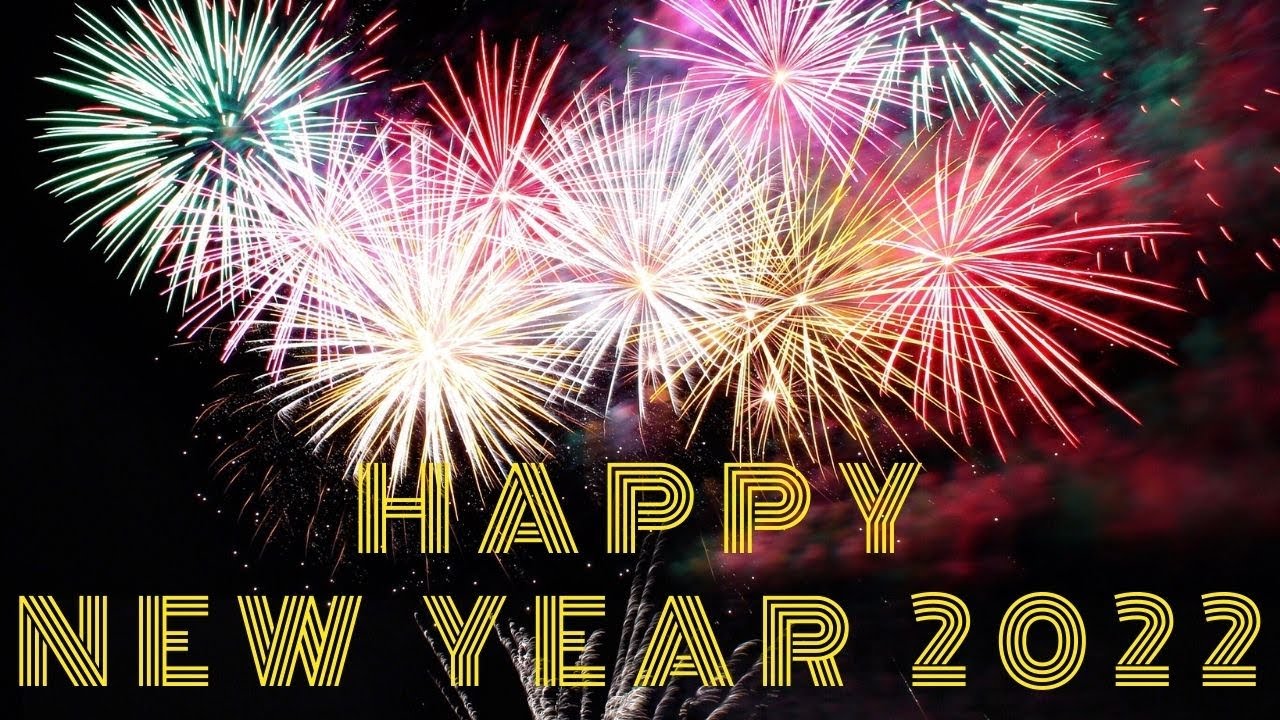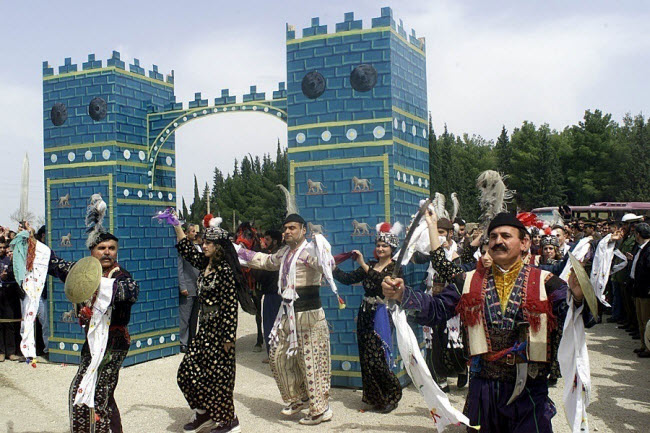- Home
- Life Quotes
- The origin and meaning of New Year's Day.
The origin and meaning of New Year's Day.
The origin and meaning of New Year's Day.

You know, the celebration of the past year and the preparation of a new year has been going on for four millennia. Accordingly, major civilizations are the cradles of this celebration, and until now, we have only had New Year's Day like today.
Today, dear, let's discover the story behind this January 1 issue!
A. Ancient New Year Celebration
Festivals in honor of New Year's Day are recorded at some 4,000 years ago in ancient Babylon. After the equinox on the last day of March will appear the first new moon, with equal amounts of sunlight and darkness. As a sign of the beginning of a new year, the Babylonians (Mesopotamia) would celebrate the rebirth of the world with the religious festival Akitu (meaning barley).
Another aspect, Atiku is also an occasion to celebrate the mythical victory of the Babylonian sky god Marduk over the evil sea goddess Tiamat; and ritual humiliation of the Babylonian king, a tool for consolidating political power.
During antiquity, civilizations around the world developed calendars, and they often fixed the first day of the year on an agricultural or astronomical national event, for example. In Egypt, the New Year is associated with the annual flood of the Nile River, and is also the time of the ascent of Sirius (the brightest star in the night sky after a 70-day absence). Meanwhile, the first day of the new year in China is associated with the second new moon after the winter solstice.
B. January 1 becomes New Year's Day
1. Birth of January 1
The early Roman calendar consisted of 10 months and 304 days, and the new year would begin on the spring equinox (March). This calendar was created by Romulus, the founder of Rome, in the eighth century BC. Later, the king Numa Pompilius added the months January and February. Its name is derived from the name of the two-faced god that allows him to see the past and look to the future - Janus - the god of change and beginnings.
Over the centuries, the calendar has not synchronized with the sun. In 46 BC, Emperor Julius Caesar consulted with the most prominent astronomers and mathematicians of his time and came up with the Julian calendar (akin to the modern Gregorian calendar used by most nations. used in the world today).
2. January 1st – Happy New Year
For the Romans, January was significant. Emperor Caesar considered January 1 as the first day of the year to honor the god Janus. To commemorate and celebrate, the Romans offered sacrifices to Janus and exchanged gifts, decorated their homes with laurel branches, and attended sumptuous feasts.
In medieval Europe, Christian leaders temporarily replaced January 1 as New Year's Day with dates of more religious significance, such as December 25 (the anniversary of the birth of Jesus Christ). -su) and March 25 (Annunciation). In 1582, Pope Gregory XIII re-established January 1 as New Year's Day.
C. New Year traditions and celebrations around the world

In many countries, New Year celebrations begin on the evening of December 31 (New Year's Eve) and last into the early hours of January 1. Around this time, people usually gather together. , organize parties, eat special food, make New Year's resolutions and also watch fireworks together. Traditionally, these are also considered good fortunes for the coming year.
- In Spain and some other Spanish-speaking countries, people often plant grapes, because grapes symbolize their hope in the coming months before midnight.
In many parts of the world, traditional New Year dishes include beans such as lentils in Italy and black-eyed peas in the southern United States. Because people believe that beans are like coins and it is a harbinger of future financial success.
- In Cuba, Austria, Hungary, Portugal and other countries, the pig symbolizes progress and prosperity, so pork always appears on the New Year's Eve party.
- In the Netherlands, Mexico and Greece, cakes and ring-shaped cakes are indispensable, a sign that the year has come fully.
- In Sweden and Norway, a story is spread that whoever finds almonds can expect in the next 12 months to be lucky. That's why rice cakes with an almond inside are served on New Year's Eve.
Other popular customs around the world include watching fireworks and singing New Year's songs, including "Auld Lang Syne" which is popular in many countries around the world.
D. Meaning of New Year's Eve
Grateful for the past year
Obviously, everyone has a certain amount of time in a year that is 365 days, but for each person, they have a different time to live, work and study. What have I done, who have I met, what have I not done, what are my plans and dreams. In a tumultuous year, this is the time when everyone can look back on the journey they have gone through, thereby silently thanking themselves for their efforts. The joys and tears will be looked back and accepted so that each person will prepare to welcome a better new year with the hope of happiness, peace and luck to their loved ones.
When the fireworks sound, it is the moment to end an old year and enter a new year.
Love and hope
“Happy New Year” along with good wishes is the catchphrase on the first days of the year. Immersed in the bustling, crowded atmosphere with the bright smile of the person in front of us, we will give each other wishes to express love as well as hope that all good things will come to that person. Belief in the future is like an invisible energy that spreads to everyone on Tet holiday.
Behind New Year's Day, January 1, there are interesting stories that we have never known before. 2quotes.net hopes that after reading the above article, the lover has had a great experience. And soon, New Year's Day will come, don't forget to prepare your loving wishes to your loved ones!
Happy new year!!!